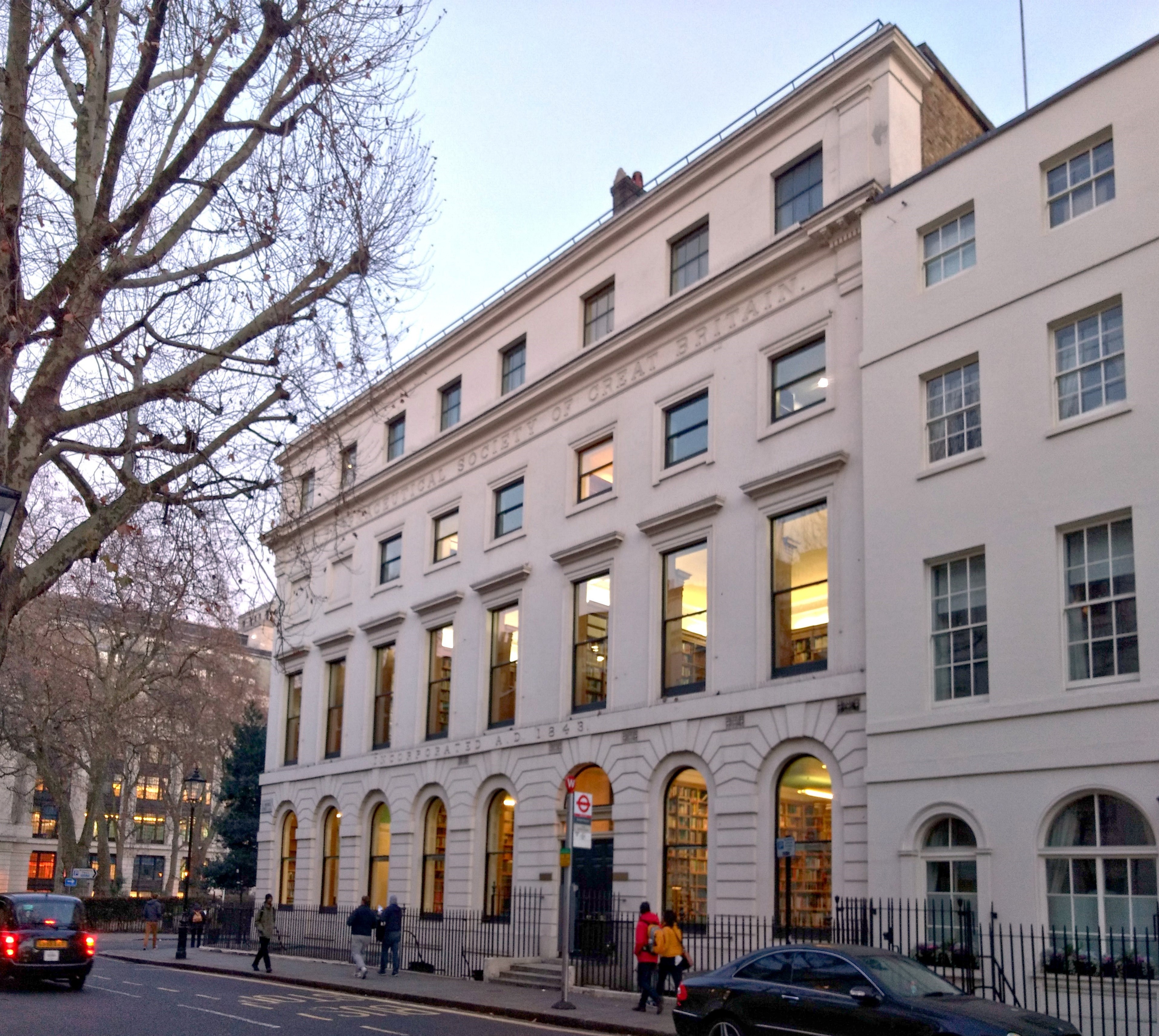|
William Empson
Sir William Empson (27 September 1906 – 15 April 1984) was an English literary critic and poet, widely influential for his practice of closely reading literary works, a practice fundamental to New Criticism. His best-known work is his first, '' Seven Types of Ambiguity'', published in 1930. Jonathan Bate has written that the three greatest English literary critics of the 18th, 19th and 20th centuries are Johnson, Hazlitt and Empson, "not least because they are the funniest". Background and education Empson was the son of Arthur Reginald Empson of Yokefleet Hall, East Yorkshire. His mother was Laura, daughter of Richard Mickelthwait, JP, of Ardsley House, Yorkshire. He was a first cousin of the twins David and Richard Atcherley. Empson first discovered his great skill and interest in mathematics at his preparatory school. He won an entrance scholarship to Winchester College, where he excelled as a student and received what he later described as "a ripping education" ... [...More Info...] [...Related Items...] OR: [Wikipedia] [Google] [Baidu] |
Yokefleet
Yokefleet (also known as Yorkfleet) is a Hamlet (place), hamlet and former civil parish, now in the parish of Blacktoft, in the East Riding of Yorkshire, England. A very small part of Yokefleet is in the civil parish of Laxton, East Riding of Yorkshire, Laxton. It is situated on the north bank of the River Ouse, Yorkshire, River Ouse, downstream from York, Selby and Goole. In 1931 the parish had a population of 102. Yokefleet is approximately south-east from Howden and south-east from the county town of York. Yokefleet lies within the Parliamentary constituency of Goole and Pocklington (UK Parliament constituency), Goole and Pocklington. Yokefleet Hall is a Listed building#England and Wales, Grade II listed mansion house of Victorian architecture, Victorian design by architect Cuthbert Brodrick. The hall is on the eastern edge of the hamlet and the current house was built between 1868 and 1874 according to the York Georgian Society. History Yokefleet is one of the ancient ma ... [...More Info...] [...Related Items...] OR: [Wikipedia] [Google] [Baidu] |
Tripos
TRIPOS (''TRIvial Portable Operating System'') is a computer operating system. Development started in 1976 at the Computer Laboratory of Cambridge University and it was headed by Dr. Martin Richards. The first version appeared in January 1978 and it originally ran on a PDP-11. Later it was ported to the Computer Automation LSI4 and the Data General Nova. Work on a Motorola 68000 version started in 1981 at the University of Bath. MetaComCo acquired the rights to the 68000 version and continued development until TRIPOS was chosen by Commodore in March 1985 to form part of an operating system for their new Amiga computer; it was also used at Cambridge as part of the Cambridge Distributed Computing System. Students in the Computer Science department at Cambridge affectionately refer to TRIPOS as the ''Terribly Reliable, Incredibly Portable Operating System''. The name TRIPOS also refers to the Tripos system of undergraduate courses and examinations, which is unique to Cam ... [...More Info...] [...Related Items...] OR: [Wikipedia] [Google] [Baidu] |
BBC World Service
The BBC World Service is a British Public broadcasting, public service broadcaster owned and operated by the BBC. It is the world's largest external broadcaster in terms of reception area, language selection and audience reach. It broadcasts radio news, speech and discussions in more than 40 languages to many parts of the world on Analogue signal, analogue and Shortwave listening, digital shortwave platforms, internet streaming, podcasting, Satellite radio, satellite, Digital Audio Broadcasting, DAB, FM broadcasting, FM, Longwave, LW and Medium wave, MW relays. In 2024, the World Service reached an average of 450 million people a week (via TV, radio and online). BBC World Service English maintains eight regional feeds with several programme variations, covering, respectively, East Africa, East and Southern Africa; West Africa, West and Central Africa; Europe and Middle East; the Americas and Caribbean; East Asia; South Asia; Australasia; and the United Kingdom. There a ... [...More Info...] [...Related Items...] OR: [Wikipedia] [Google] [Baidu] |
George Orwell
Eric Arthur Blair (25 June 1903 – 21 January 1950) was an English novelist, poet, essayist, journalist, and critic who wrote under the pen name of George Orwell. His work is characterised by lucid prose, social criticism, opposition to all totalitarianism (both authoritarian communism and fascism), and support of democratic socialism. Orwell is best known for his allegorical novella ''Animal Farm'' (1945) and the Utopian and dystopian fiction, dystopian novel ''Nineteen Eighty-Four'' (1949), although his works also encompass literary criticism, poetry, fiction and polemical journalism. His non-fiction works, including ''The Road to Wigan Pier'' (1937), documenting his experience of working-class life in the industrial north of England, and ''Homage to Catalonia'' (1938), an account of his experiences soldiering for the Republican faction (Spanish Civil War), Republican faction of the Spanish Civil War (1936–1939), are as critically respected as George Orwell bibliograph ... [...More Info...] [...Related Items...] OR: [Wikipedia] [Google] [Baidu] |
National Southwestern Associated University
The National Southwestern Associated University was a national public university from 1938 to 1946 based in Kunming, Yunnan, China. It was formed by the wartime incorporation of National Peking University, National Tsinghua University, and National Nankai University. When the Second Sino-Japanese War broke out between China and Japan in 1937, Peking University, Tsinghua University and Nankai University merged to form Changsha Temporary University in Changsha and later National Southwestern Associated University in Kunming and Mengzi, in Southwest China's Yunnan Province. After the war, the universities moved back and resumed their operation. What was left behind in Kunming became the National Kunming Normal University which later emerged as the Yunnan Normal University. History By summer 1937, the Imperial Japanese Army had bombed Nankai University to the ground in Tianjin and occupied areas including the campuses of two of the country's leading universities in Bei ... [...More Info...] [...Related Items...] OR: [Wikipedia] [Google] [Baidu] |
Kunming
Kunming is the capital and largest city of the province of Yunnan in China. The political, economic, communications and cultural centre of the province, Kunming is also the seat of the provincial government. During World War II, Kunming was a Chinese military center and the location of the headquarters for the US Army Forces China-Burma-India. Kunming Wujiaba International Airport, Wujiaba Airport served as the home of the Flying Tigers, First American Volunteer Group (AVG) of the Republic of China Air Force, nicknamed the Flying Tigers. Kunming was also a transport terminus for the Burma Road. Kunming is at an altitude of Above mean sea level, above sea level and a latitude just north of the Tropic of Cancer, and is situated in the middle of the Yunnan–Guizhou Plateau. Kunming is the fourth most populous city in Western China, after Chongqing, Chengdu, and Xi'an, and the third most populous city in Southwestern China after Chongqing and Chengdu. As of the 2020 census, Kunmin ... [...More Info...] [...Related Items...] OR: [Wikipedia] [Google] [Baidu] |
Peking University
Peking University (PKU) is a Public university, public Types of universities and colleges in China#By designated academic emphasis, university in Haidian, Beijing, China. It is affiliated with and funded by the Ministry of Education of the People's Republic of China, Ministry of Education of China. The university is part of Project 211, Project 985, and the Double First-Class Construction. It is also a member in the C9 League. Established as the Imperial University of Peking in 1898 by a royal charter from the Guangxu Emperor, it is the second oldest university in China after Tianjin University (established in 1895). In May 1912, the government of the Republic of China ordered the Imperial University of Peking to be renamed Peking University. Then Peking University merged with Yenching University during the nationwide restructuring of universities and academic departments in 1952. In April 2000, the Beijing Medical University merged with the Peking University. Peking Universit ... [...More Info...] [...Related Items...] OR: [Wikipedia] [Google] [Baidu] |
Bloomsbury
Bloomsbury is a district in the West End of London, part of the London Borough of Camden in England. It is considered a fashionable residential area, and is the location of numerous cultural institution, cultural, intellectual, and educational institutions. Bloomsbury is home of the British Museum, the largest museum in the United Kingdom, and several educational institutions, including University College London and a number of other colleges and institutes of the University of London as well as its central headquarters, the New College of the Humanities, the University of Law, the Royal Academy of Dramatic Art, the British Medical Association and many others. Bloomsbury is an intellectual and literary hub for London, as home of world-known Bloomsbury Publishing, publishers of the ''Harry Potter'' series, and namesake of the Bloomsbury Group, a group of British intellectuals which included author Virginia Woolf, biographer Lytton Strachey, and economist John Maynard Keynes. Bloo ... [...More Info...] [...Related Items...] OR: [Wikipedia] [Google] [Baidu] |
In Flagrante Delicto
''In flagrante delicto'' (Latin for "in blazing offence"), sometimes simply ''in flagrante'' ("in blazing"), is a legal term used to indicate that a criminal has been caught in the act of committing an offence (compare ). The colloquial "caught red-handed" is an English equivalent. Aside from the legal meaning, the Latin term is often used colloquially as euphemism for someone being caught in the midst of sexual activity. Etymology The phrase combines the present active participle '' flagrāns'' (flaming or blazing) with the noun '' dēlictum'' (offence, misdeed, or crime). In this term the Latin preposition ''in'', not indicating motion, takes the ablative. The closest literal translation would be "in blazing offence", where " blazing" is a metaphor for vigorous, highly visible action. Worldwide Latin America In many Latin American countries, being caught ''in flagrante'' (, ) is a common legal requirement for both detention and search and seizure. Naturally, being c ... [...More Info...] [...Related Items...] OR: [Wikipedia] [Google] [Baidu] |
Condoms
A condom is a sheath-shaped barrier device used during sexual intercourse to reduce the probability of pregnancy or a sexually transmitted infection (STI). There are both external condoms, also called male condoms, and internal (female) condoms. The external condom is rolled onto an erect penis before intercourse and works by forming a physical barrier which limits skin-to-skin contact, exposure to fluids, and blocks semen from entering the body of a sexual partner. External condoms are typically made from latex and, less commonly, from polyurethane, polyisoprene, or lamb intestine. External condoms have the advantages of ease of use, ease of access, and few side effects. Individuals with latex allergy should use condoms made from a material other than latex, such as polyurethane. Internal condoms are typically made from polyurethane and may be used multiple times. With proper use—and use at every act of intercourse—women whose partners use external condoms experi ... [...More Info...] [...Related Items...] OR: [Wikipedia] [Google] [Baidu] |
Sonnet 129
Sonnet 129 is one of the 154 sonnets written by William Shakespeare and published in the 1609 Quarto. It is considered one of the "Dark Lady" sonnets (127–152). Overview Sonnet 129 considers the emotional experience of the act of physical love as it progresses in time: first the anticipation of lust, then the consummation, followed by the complete shift in mood of the aftermath. The sonnet in spirit resembles a passionate dramatic monologue, and seems to be expressed by a man who looks back at such an act of love with bitter fury at its contrasting aspects. The sonnet begins with a howl of disgust, as the poet condemns the experience, listing negative aspects of lust in anticipation: It can cause a man to be dishonest, brutal, shameful, savage, and cruel. The moment lust is satisfied, it is despised the way a fish might despise the bait it has swallowed. The poem ends with the couplet pointing out that though all men are aware that love in action may provide pleasure, it end ... [...More Info...] [...Related Items...] OR: [Wikipedia] [Google] [Baidu] |





